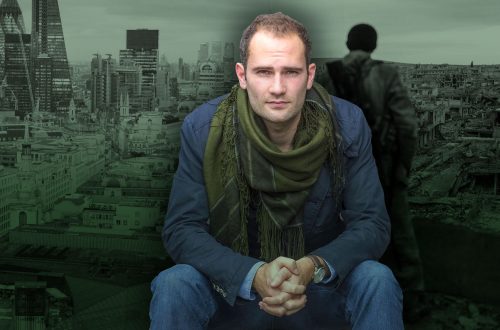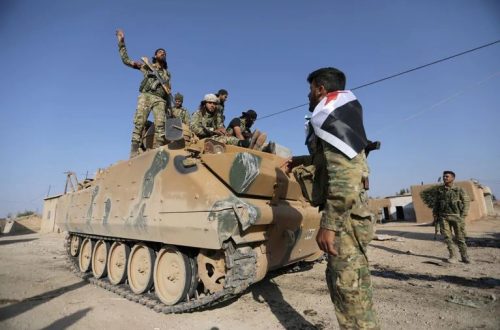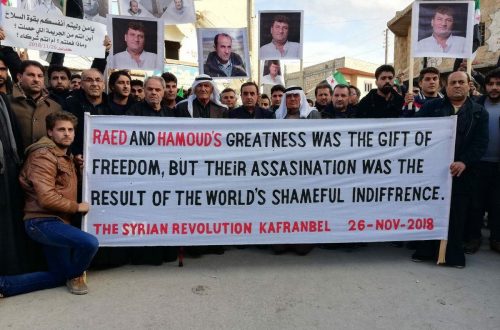Guest post by DaveM
In 1936 the National Union of Journalists set up a 12-point code of conduct which its members must strive to adhere to. Points 2 through 4 state that a journalist:
• Strives to ensure that information disseminated is honestly conveyed, accurate and fair.
• Does her/his utmost to correct harmful inaccuracies.
• Differentiates between fact and opinion.
In his report from Damascus, The Daily Telegraph’s Peter Oborne has fallen short in adhering to these principles. James Snell at Left Foot Forward has written an excellent rebuttal of his article. I would like to add my two cents, as it looks to me as if Oborne has unwittingly been drinking the Ba’ath Kool Aid. His piece reads like something published by SANA.
Oborne makes the fatal mistake of taking what people tell him at face value, something one must never do in a dictatorship. And he ends up regurgitating a lot of Ba’ath propaganda tropes. Let’s have a look at some of them, starting with the trivial and working towards the serious.
Residents even claimed that President Assad often drives himself to his office from the relatively modest flat where he lives, and can sometimes be seen stuck in the rush-hour traffic.
This is a lie which Assad has been staging for years for the benefit of anybody gullible enough to swallow it. The idea that he drives himself unguarded through heavy Damascus traffic is a total fantasy. I was in Damascus in 2007 when Assad gave his victory speech to the Syrian parliament after he won his “election”. This meant that he had to travel to the Syrian parliament in the centre of Damascus so all the roads leading into the town centre were closed to traffic and there were security forces everywhere.
Over the past few days, I have talked to shopkeepers, students, soldiers, doctors, a dentist, MPs and government ministers (including the minister for tourism, who must have the most thankless job in the world). On the basis of these conversations, I would judge not just that support for the regime is holding up, but that President Assad could very well win a popular election, even if carried out on a free and fair basis. Such elections are in fact due: the president must hold a poll before July 17 if he is not to exceed his constitutional term of office. An announcement is expected soon.
If that’s the case, why did Assad’s advisor Bouthaina Shaaban refuse to accept international observers? If Oborne is so sure that Assad would win a free and fair election then perhaps he can explain to me why at this time there are no ballot boxes in the refugee camps of Jordan, Turkey, and Lebanon.
Discussing this vote, I found – to my surprise – that even people outside the governing Ba’ath party, including some of Assad’s political opponents, said they would support him. Maria Saadah, an independent MP for Damascus, told me that her career as an architect had suffered because she did not belong to the Ba’ath, and that she had entered politics at the beginning of the crisis because she wanted to reform the system. But she added that the middle of a war against what she described as foreign-backed insurgents – which is how the regime ceaselessly depicts its opponents – was not the time for that. Syrian sovereignty, she said, had to come first.
Thirty seconds on Google shows that Maria Saadah is a regime mouthpiece who has appeared on State TV and pro-Assad Lebanese channels such as the Amal Movement’s NBN and the Aounist channel OTV. She has even presented a programme on a Syrian Pro-Assad channel, Sama.
This is not to say that as a Christian she doesn’t have serious and legitimate concerns about what a post-Assad Syria could look like and its impact on Christians and other religious minorities. However it’s a stretch to present her a political opponent of Assad just because she is not a member of the Ba’ath Party.
People here see their country as being threatened by foreign powers (above all Saudi Arabia, Qatar and Turkey, all backed by the West) who are sponsoring the jihadist groups that make up the opposition. I was struck by the fact that this argument is not made only by the Alawite coterie around the president. I also heard it from Sunni Muslims, Christians and members of the various other cultural and religious groups that abound in Syria.
The idea that the opposition is made up solely of jihadist groups is the Ba’ath party line. There are non-jihadist opposition groups and brigades. However after three years of bloodshed the jihadists are in the ascendency and this is a serious issue which can’t be ignored or fudged.
How can this square with the Western narrative that President Assad’s government, with the aid of a handful of tribal followers, is hell-bent on the destruction of the rest of the country? Consider the facts. Only a handful of members of Assad’s 30-strong cabinet (I was told two) are Alawite. The prime minister is Sunni, as are the interior minister, the justice minister, the foreign minister, even the defence minister. The delegation that travelled to Geneva for the failed peace talks several months ago was also almost entirely composed of Sunni Muslims (though they would probably reject sectarian terms, and prefer to think of themselves just as Syrians).
Oborne is looking in all the wrong places – the religious background of the PM, interior minister, foreign minister, defence minister doesn’t matter as they have no power. The Orwellian-named “People’s Assembly” (Syrian parliament) is nothing more than a rubber stamp. Assad’s Syria is not a parliamentary democracy but a totalitarian state where the real power lies with those who run the various security apparatuses. It’s embarrassing that I even have to state this. Even though it’s a year old this is a much more accurate indication of who holds the reins of power in Assad’s regime. The names in dark green concentrated around Bashar Al Assad are Alawites.
He walked me along an alleyway to his home and pointed to a destroyed balcony where his mother had liked to sit. Two months ago, she had been resting there as usual when she was killed by a direct hit from a mortar. “Your government,” he told me, “is the worst ever; they want Syria to be a democracy and ally themselves with Saudi Arabia, which has nothing to do with democracy.”
There’s a paradox here. Saudi Arabia itself is one of the most repressive states on the planet and has just declared that atheists are terrorists. Yet oddly enough that doesn’t mean that it just sponsors extremists and fanatics outside its borders. In Lebanon it was a supporter of former Prime Minister Rafiq Hariri, a reformer who endeavoured to open up Lebanon economically and politically. Saudi Arabia is also closely linked to TV news channel Al Arabiya which is one of the most (relatively speaking) moderate Arabic-language satellite news channels.
There are no “good guys” in Syria’s civil war. But we should not be blind to the fact that there is a project out there to destroy its rich, pluralist and unbelievably intricate culture and replace it with a monochrome version of Wahhabi Islam, of the kind favoured by Saudi mullahs. And for reasons that history may come to judge very severely, Britain, the United States, and the West have been aiding and abetting this project.
First, did Oborne have the pleasure of discussing this “rich, pluralist and unbelievably intricate culture” with Syria’s Jews? Probably not.
Second, a project to destroy Syria’s pluralism? The war has undoubtedly become sectarian and the minorities have every right to be concerned. In the Middle East when Islam dominates, it doesn’t do a particularly good job at co-existence, to put it mildly. Yet when Oborne writes that Syria is a victim of a single “project” to destroy its pluralism he practically parrots the very words the regime has been saying for the last two years.
As the Wall Street Journal reported in 2012:
From the very start of the current conflict, history and religion have played a key role in fueling passions on both sides in Syria. And this has become more pronounced as the conflict dragged on, turning bloodier and more vicious.
One of the oft-repeated assertions made by the Syrian regime plays effectively on ancient rivalries. The conflict, it says, is an attempt by neo-Ottomans in Turkey and expansion-minded Muslim ultraconservatives from Saudi Arabia—known as Wahhabis—to gain a foothold in Syria.
This narrative, one of majority Sunni Muslims overwhelming and dominating minorities, is now a staple of nightly news bulletins on Syrian state television. The regime knows well how this message resonates with Christians and other minorities.
Yet there is one sentence in Orbone’s article which just sticks in the craw. Outrage is an easy emotion but the following sentence is breathtakingly offensive.
I am well aware that the government has committed dreadful atrocities, though I suspect that some of the accounts have been exaggerated.
It’s strange that he suspects that some accounts are exaggerated but neglects to inform us which ones we can trust and which are embellished.
Was this account of the regime starving Palestinians exaggerated?
Or is this one warning about a repeat of the situation embellished in any way?
Or how about this one about the regime’s use of barrel bombs?
In defiance of the UN security council resolution Assad’s forces are continuing to indiscriminately bombard civilians using barrels packed with explosives. In less than two months around 1,000 Syrians have been killed by barrel bombs with 97% of those killed being civilians.
This proportion (of civilian deaths) appears expected vis-a-vis un-aimed barrel bombs which are dropped from a distance of nearly 5,000 meters. The latest report from the Syrian Network for Human Rights has documented these numbers. The report confirms that half of the victims fell in the region of Aleppo which has witnessed the most intense barrel bombings. Women and children make up 42% of the dead.
The (continuation of the) targeting of civilians by Assad’s forces doesn’t appear to have taken any heed of the UN Security Council resolution which stipulates very clearly that there should be an immediate stop to all attacks on civilians, and a halt to the indiscriminate use of weapons in populated areas. Despite this decision the situation on the ground hasn’t changed, as the Syrian Network for Human Rights has established.
With Assad’s continual violation of international human rights laws and doing so by the targeting of unarmed civilians, the Network’s report calls upon the International Community to take additional measures against the regime. It also calls for the referral of the situation in Syria to the International Criminal Court due to the regime committing war crimes against civilians
Or allegations of chemical weapon attacks?
In the current year the Syrian Regime has used chemical and poisonous gas 14 times against civilian and military targets at an average of four times per month.
The occurrences have been documented by the Centre of Registration of Violations in Syria in a report which uncovers that these violations have resulted in 22 deaths and 259 cases of injury.
The source’s numbers, which haven’t been corroborated by other sources, state that Jobar in Damascus has been targeted three times by the regime using poisonous gas delivered via hand granades. Daria and Adra in the outskirts of Damascus have been targeted in the same way.
As for Harasta in the outskirts of Damascus, it’s been targeted three times, though without knowing how the gas was delivered. Kafer Zaita in Hama was targeted three times using poison gas which was delivered via barrel bombs. Atshan, Zur el Haisa and Al-Tamanah were targeted the once.
The report contains requests to three international agencies – requesting the the Special Committee for the Investigation of Chemical Weapons in Syria to immediately head to the sites in which gas has been used to inspect them. There’s an appeal for the OPCW and the UN Joint Mission to quickly open an immediate investigation in this attack and to release a statement explaining the steps in they’ve carried out to this end.
The report also contains an appeal for the UN Security Council to intervene under Chapter 7 with the aim of the immediate removal of chemicals from the regime which has included them as part of its military arsenal, as the Syrian opposition claim. And the calling of a meeting to issue a resolution obligating the regime to permit the Special Committee for the Investigation of Chemical Weapons to enter all the areas which have have seen the use of chemicals. And an immediate investigation and the cessation of air and land bombardments and referring the Syrian file to the International Criminal Court in order to determine who’s responsible and to guarantee that they’re held to account.
Both the British Foreign Office and the French President have voiced concerns that the regime is attacking Syrians using chlorine gas.
When it comes to Ba’athists and the horrors they’re prepared to inflict on their own population just to remain in power, it’s nearly impossible to exaggerate. This is because what they’ve been doing for the last three years is almost beyond comprehension.


